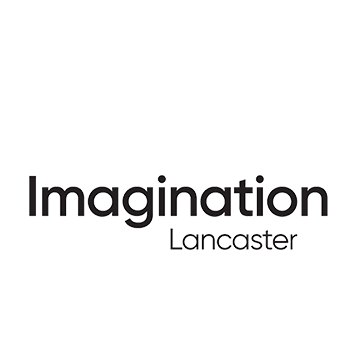“… bridges have to be built and walls have to be torn down. When we are here in this room talking, and we have already participated as social leaders in other debates, in other moments, in other topics – what I always like saying is that this doesn’t stay just in a room of talk but that we have to take this out to more people we know… This is what we call building bridges” Community member
In February 2020, we were awarded a Lancaster University Seed Corn Grant that enabled us to conduct a pilot study aimed to identify the needs of communities and recovery challenges from the perspectives of diverse stakeholder groups and communities in a Brazilian context. We looked into the needs, challenges and also strategies of communities who live in Brazilian informal settlements during and beyond the COVID-19 Pandemic.
This project surprised me in each roundtable with community members and representatives of NGOs. The conversations helped us understand their experiences and make their ‘invisible’ voices visible through mapping methods. I am delighted to share part of these voices and learnings that surprised me not only because of their topics or realities described but due to the awareness of community members on these and to the sense of community and collaboration, strength and proactivity of these community members that make the word ‘vulnerable’ completely unsuitable for characterizing them.
We listened to brilliant and proactive informal-settlement community members to identify their needs, adaptative strategies and areas of challenges during the COVID-19 pandemic in Brazil through this pilot study conducted in collaboration with Brazilian researchers. Our aim was to provide grounds for future exploration of how participatory design methods and design capabilities can contribute to the resilience of informal-settlement communities considering short-term (immediate effects/actions) and long-term (strategy, policy, plan, vision for the future) aspects. Their voices need to be shared and listened to, and our research mechanisms should consider agile and effective ways to respond to their needs, enabling mutual learning and knowledge co-creation that can be quickly appropriated by the citizenry, NGOs, civil servants, policy-makers and socially responsible companies in the private sector.
As we have listened, communities who live in informal settlements have mostly relied on their adaptative strategies and partnerships with NGOs and socially responsible companies to tackle the immediate effects of the pandemic. Although the government has promoted benefits to communities during the pandemic, they are not comprehensive and plural enough to reach everyone who needs them. For instance, barriers regarding the technological divide and the information system of the public sector render access to benefits difficult for informal-settlement communities. COVID-19 government initiatives have failed, missing socio-economic determinants aspects and neglecting failures in the public information system (e.g. citizens’ data which should be conveyed from one department to another are not, making some citizens invisible). Additionally, the political traditions and climate influence the disbelief in the COVID-19 threat, as mentioned by one of the community members:
“Does it [the COVID-19 virus] really exist? Might it not just be a manipulation? Could there be a hidden political interest in all this?”
This perception likely changed since confirmed cases and deaths due to the COVID-19 disease soared.
Most areas of challenges and community needs during the pandemic are not caused by the COVID-19 circumstances but exacerbated by those, confirming the urgent need to solve persistent community problems. Challenges regarding COVID-19 prevention, diagnosis, treatment, and support to tackle its effects and impacts can be categorised into the following areas:
- Communication
- Education
- Employment and income
- Culture, leisure and behaviour
- Public health (National Health System) access and service
- Public administration
The needs of the communities were identified regarding 6 macro themes:
- Co-operation and co-development
- Unity and collaboration
- Dissemination, expansion and sustainability
- Political and citizenship changes
- Valuing women
- Science advancement
Most community members described the abandonment of the government and public authorities as evidenced by them during our roundtable conversations. This is reflected on most adaptative strategies mentioned that are led and operated by community members, sometimes in collaboration with NGOs and socially responsible companies. This has also been leading to a strong awareness of the importance of the proactivity of community members in solving their problems and tackling community challenges.
Participatory design, especially co-design, can contribute to most areas of challenges and community needs by building dialogues and providing effective ways to establish collaboration and improve communication, empowering communities to act upon their needs and areas of challenges (You will be able to read more about these needs and areas of challenges in our forthcoming paper: “Design for Resilience: Mapping the needs of Brazilian communities to tackle COVID-19 challenges” that will be published in the first special issue: Design contributions for the COVID-19 global emergency of the Strategic Design Research Journal soon). Health is seen usually from a reactive lens, as a response to a disease in this context. The need to co-design a proactive approach to health and well-being that contributes to community resilience-building is critical in this context. We are still keeping an eye on opportunities to empower communities and build dialogues between key stakeholder groups.
Photo by Mario Purisic on Unsplash
